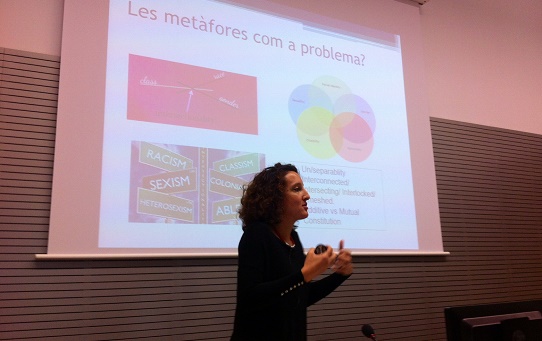Since first proposed by Henri Lefebvre in 1968, the right to the city is understood to be a fundamental right of those who live in cities. Despite the theoretical and political importance of this concept, it has been criticized for overlooking individual and collective differences and for excluding the analysis of patriarchal power relations.
Maria Rodó de Zárate, postdoctoral researcher at Gender and ICT, offered a talk about this discussion at the Internet Interdisciplinary Institute (IN3) on 10 October 2016, based on the research she has carried out over the last years. From an intersectional feminist perspective, she highlighted some fundamental aspects of the right to the city concept that are typically ignored and are the source of multiple exclusions related to gender, sexuality, ethnicity, class and age, among other categories.
Matters such as emotional distress or fear of public spaces require methodologies and conceptual frameworks that enable researchers to capture emotions as indicators of unequal access to the city. In her talk session, Maria Rodó de Zárate presented the Relief Maps she has developed as a methodology for collecting data and analysing it in relation to three dimensions: geography, psychology and society.
A relief map provides a visual image of oppression and privilege in the urban spaces, giving special emphasis to the role of emotions in the production process of inequalities. In sum, it is a methodological tool to understand, and answer to, the complexity of power relationships, which considers the body and the private spaces when analysing the configuration of cities.
